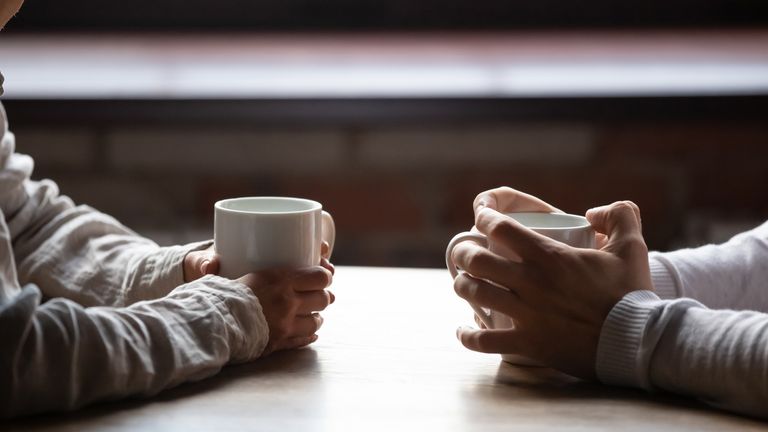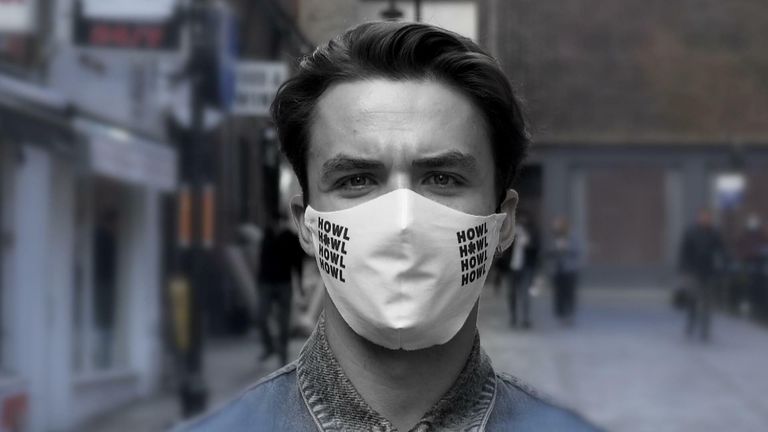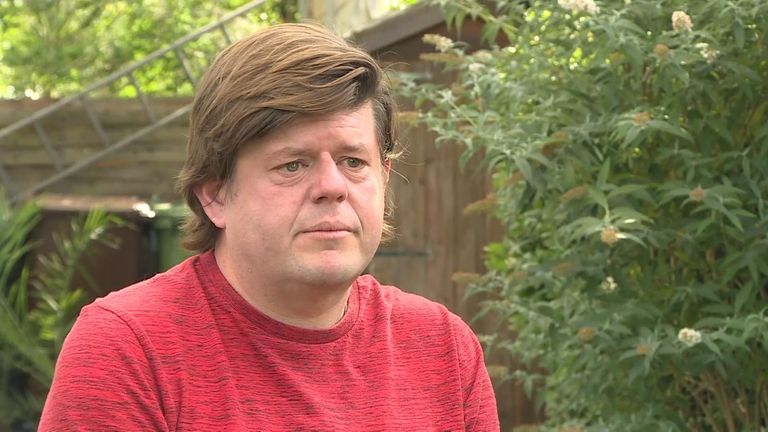Coronavirus: One in five COVID-19 patients develop mental health problems, study suggests
One in five COVID-19 patients develop mental health problems within three months, a study has suggested.
For 5% percent of survivors, this was the first time they had been diagnosed with a mental health issue, according to researchers at the University of Oxford and NIHR Oxford Health Biomedical Research Centre.
The analysis of 69 million electronic health records in the US, including 62,000 cases of COVID-19, identified anxiety, depression and insomnia as the most commonly-developed problems.
People with a pre-existing psychiatric diagnosis were also 65% more likely to contract the virus, the study claimed.
Dr Max Taquet, a researcher who conducted the analyses, said having a psychiatric disorder should be added to the risk factors for COVID-19.
For those with a history of mental illness, contracting coronavirus made it more likely they would relapse or receive another psychiatric diagnosis.
Olivia Wilson, 26, has experienced first-hand the lingering effects of the virus on mental health.
She said she was “in a good place” before getting COVID-19 in March and her mental health “wasn’t anything out of the ordinary”.
When she contracted the virus in Queens, New York, she developed debilitating symptoms.
She had trouble breathing and couldn’t walk for a month, but she said there were no hospitals or emergency rooms taking patients at the time so she recovered at home.
Since then, her anxiety has “spiked” and she has been experiencing panic attacks for the first time.
“I’m afraid everywhere I go I’ll get the virus or I’ll give it to someone unknowingly,” she said.
Although she hasn’t been formally diagnosed with a mental illness, she described herself as “very paranoid” now, with bouts of insomnia for “a week or two”, followed by periods where “I only sleep”.
“It’s like an impending doom hanging over my head that at some point, I could be right back to where I was,” she told Sky News.
Unlike Olivia’s, Dennes’s case of COVID-19 was relatively mild – but the mental health impact was still substantial.
The 21-year-old has struggled with depression since he was 17, which significantly worsened after he tested positive for COVID-19 in May.
His mother was hospitalised with the virus shortly before he became ill, which made self-isolating alone for three weeks even harder.
“It wrecked me,” the Californian resident told Sky News. “Hearing the person who raised you crying, afraid that she was going to die, really messed me up.”
Dr Taquet said it is not clear how much of a role is played by circumstantial factors – like having to self-isolate for weeks alone.
“We’re not sure what’s causing it,” he told Sky News.
He said it is “plausible” that COVID-19 could be affecting the brain – either directly like some viruses, or due to the dilation of blood vessels when the body has an inflammatory response.
“It might also be that what we’re seeing is not directly related to a change in the brain but rather a change in the psychology of the individual,” he added.
:: Subscribe to the Daily podcast on Apple Podcasts, Google Podcasts, Spotify, Spreaker
Dr Adrian James, president of the Royal College of Psychiatrists, told Sky News the findings “add to a growing body of evidence showing the threat COVID-19 poses to mental health as well as physical health”.
He described the findings as a “double whammy” that is “deeply concerning” and has the potential to “overrun services that are already stretched”.
“Responding to the growing mental health crisis demands urgent action and must be put at the centre of the government’s pandemic response,” he said, calling for mental health services to be expanded.
Source: Read Full Article






